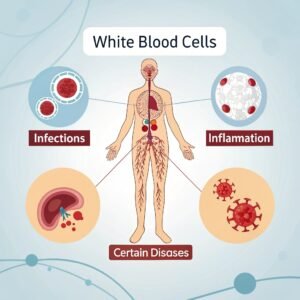Building Resilience: Preparing Global Healthcare for Future Crises
The COVID-19 pandemic revealed significant challenges in global healthcare systems while offering critical lessons for future preparedness. By analyzing these experiences, we can better equip ourselves to handle potential health crises.
Strengthen Early Detection Systems: Lessons from COVID-19 for Global Healthcare
- The pandemic emphasized the need for robust surveillance and early warning systems. Quick identification and response to outbreaks can significantly reduce their impact. Investing in advanced diagnostic tools and cross-border data sharing is crucial.
Enhance Global Collaboration - COVID-19 highlighted the value of international cooperation. Sharing research, resources, and expertise allowed nations to develop vaccines and treatments rapidly. Stronger global partnerships and frameworks for resource allocation can improve future pandemic responses.
Prioritize Healthcare Infrastructure
- Overburdened hospitals during the pandemic demonstrated the need for resilient healthcare systems. Expanding critical care capacity, ensuring adequate staffing, and maintaining strategic reserves of essential supplies like PPE are essential steps.
Invest in Vaccine Research and Distribution - Vaccines were the cornerstone of pandemic control. Increased funding for vaccine development and equitable distribution mechanisms can ensure timely access for all countries in future crises.
Leverage Digital Health Solutions
Telemedicine and digital health tools proved invaluable during COVID-19. Strengthening these technologies can improve access to care and reduce the strain on physical healthcare facilities during emergencies.
Address Health Inequalities: Lessons from COVID-19 for Global Healthcare
The pandemic exposed disparities in healthcare access. Focusing on underserved populations ensures more equiable outcomes in future pandemics.
In conclusion, underscoring the importance of preparedness, collaboration, and innovation is crucial for a resilient healthcare system. By implementing these strategies, nations can enhance their response capabilities, optimize resource distribution, and ensure equitable healthcare access. Investing in research, technology, and healthcare workforce development will further strengthen the global health infrastructure. This proactive approach ensures that we are not only ready for future pandemics but also capable of mitigating their impact efficiently and swiftly. Together, we can build a healthier, more secure world.









